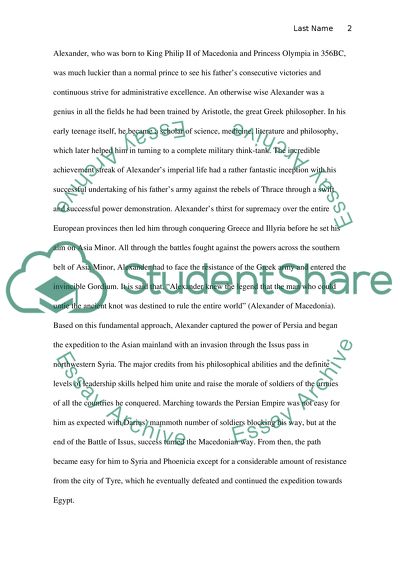Cite this document
(“Alexander the Great--Vision beyond Conquests Essay”, n.d.)
Retrieved from https://studentshare.org/history/1446475-biography-of-alexander-the-great
Retrieved from https://studentshare.org/history/1446475-biography-of-alexander-the-great
(Alexander the Great--Vision Beyond Conquests Essay)
https://studentshare.org/history/1446475-biography-of-alexander-the-great.
https://studentshare.org/history/1446475-biography-of-alexander-the-great.
“Alexander the Great--Vision Beyond Conquests Essay”, n.d. https://studentshare.org/history/1446475-biography-of-alexander-the-great.


